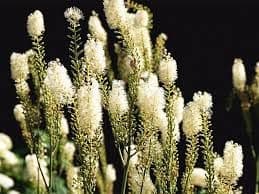Understanding PCOS: Symptoms, Causes, and Natural Management Strategies
Polycystic Ovary Syndrome (PCOS) is a common hormonal disorder affecting millions of women worldwide, particularly those of reproductive age. It not only impacts fertility but also has broader implications for overall health and well-being. If left untreated, PCOS can increase the risk of diabetes, heart disease, and other serious conditions. In this post, we'll explore the symptoms, causes, and natural ways to manage PCOS, as well as its connection to hormonal imbalances and related conditions.
What Is PCOS?
PCOS is a condition that affects how the ovaries function. Women with PCOS may have enlarged ovaries containing small cysts (fluid-filled sacs) that lead to hormonal imbalances. This disorder can disrupt a woman’s menstrual cycle, making it difficult to conceive. It’s important to note, however, that not all women with PCOS will have ovarian cysts, and not all ovarian cysts are linked to PCOS.
Symptoms of PCOS
PCOS symptoms can vary from woman to woman, but some of the most common indicators include:
- Irregular periods: Fewer than nine menstrual cycles per year or periods that are spaced out by 35 days or more.
- Excess androgen: High levels of "male" hormones that may cause physical signs such as facial hair growth (hirsutism), severe acne, or male-pattern baldness.
- Weight gain: Difficulty losing weight or unexplained weight gain, often around the abdomen.
- Ovarian cysts: Multiple small cysts may develop on the ovaries and can be seen via ultrasound.
- Thinning hair: Hair thinning or hair loss on the scalp.
- Skin changes: Darkened skin, particularly around the neck, armpits, groin, or under the breasts, as well as skin tags.
- Infertility: Difficulty getting pregnant due to irregular ovulation or lack of ovulation.
Identifying these symptoms early can help you manage the condition before it leads to complications.
Causes of PCOS
While the exact cause of PCOS is unknown, researchers believe it involves a combination of genetic and environmental factors. A key aspect of PCOS is its connection to hormonal imbalances:
- Insulin resistance: Many women with PCOS are insulin resistant, meaning their bodies struggle to use insulin effectively. This leads to higher insulin levels, which can trigger the ovaries to produce more androgen hormones.
- Excess androgen: High levels of androgens (male hormones) are a hallmark of PCOS. While both men and women have these hormones, women with PCOS produce them in excess, which can disrupt normal ovulation and cause many of the condition’s symptoms.
- Low-grade inflammation: Research suggests that women with PCOS often experience low-grade inflammation, which stimulates polycystic ovaries to produce androgens.
- Hormonal health and imbalances: PCOS is fundamentally a disorder of the endocrine system, where hormonal imbalances play a central role. A disrupted hypothalamic-pituitary-ovarian (HPO) axis, for example, can lead to irregular cycles and issues with ovulation.
Natural Ways to Manage PCOS
Managing PCOS often requires a holistic approach, combining lifestyle changes, medical interventions, and natural remedies. Here are some effective strategies:
-
Diet and Nutrition:
- A low-glycemic index (GI) diet can help regulate blood sugar and insulin levels, reducing insulin resistance—a common issue in women with PCOS.
- Increase your intake of whole grains, lean proteins, healthy fats, and fiber-rich foods i like vegetables and legumes.
- Avoid sugary foods and refined carbohydrates, which can spike insulin levels.
-
Exercise: Regular physical activity can improve insulin sensitivity and help with weight management. Aim for at least 30 minutes of moderate exercise, such as walking, swimming, or cycling, most days of the week.
-
Stress management: Stress can exacerbate PCOS symptoms by affecting cortisol and insulin levels. Practices like yoga, meditation, and deep breathing exercises can help reduce stress and promote hormonal balance.
-
Herbs and Supplements:
- Inositol: A vitamin-like compound that can help with insulin resistance and improve ovulation.
- Cinnamon: May improve insulin sensitivity and help regulate periods in women with PCOS.
- Spearmint tea: Studies show that drinking spearmint tea twice a day can reduce androgen levels and improve hirsutism.
- Maca root: An adaptogen that can help balance hormones and reduce symptoms of hormonal imbalance.
- Ashwagandha: Known to lower cortisol levels, this herb can also aid in managing stress and anxiety, which can worsen PCOS symptoms.
- Omega-3 fatty acids: Found in fish oil, Omega-3s may reduce inflammation and insulin resistance, improving PCOS symptoms.
Medical Treatment Options
For women who prefer medical treatments, doctors may recommend:
- Birth control pills: To regulate periods and reduce excess androgen production.
- Metformin: A medication often prescribed for diabetes, it helps control insulin levels and may promote regular ovulation.
- Fertility treatments: If pregnancy is a goal, medications like Clomiphene or Letrozole may be prescribed to help stimulate ovulation.
Conclusion
PCOS is a complex condition, but with the right management strategies, it can be controlled. By paying attention to diet, exercise, and stress levels—and incorporating natural remedies like herbs and supplements—you can significantly reduce symptoms and improve your quality of life. Always consult with your healthcare provider before starting any new treatment, particularly herbal supplements, to ensure they are safe and suitable for your specific situation.
If you suspect you may have PCOS or are struggling with any of the symptoms, don’t hesitate to seek medical advice for early intervention and personalized treatment options.
Welcome To The Sisterhood
Step into a space designed to uplift, educate, and empower you at every stage of your journey.


